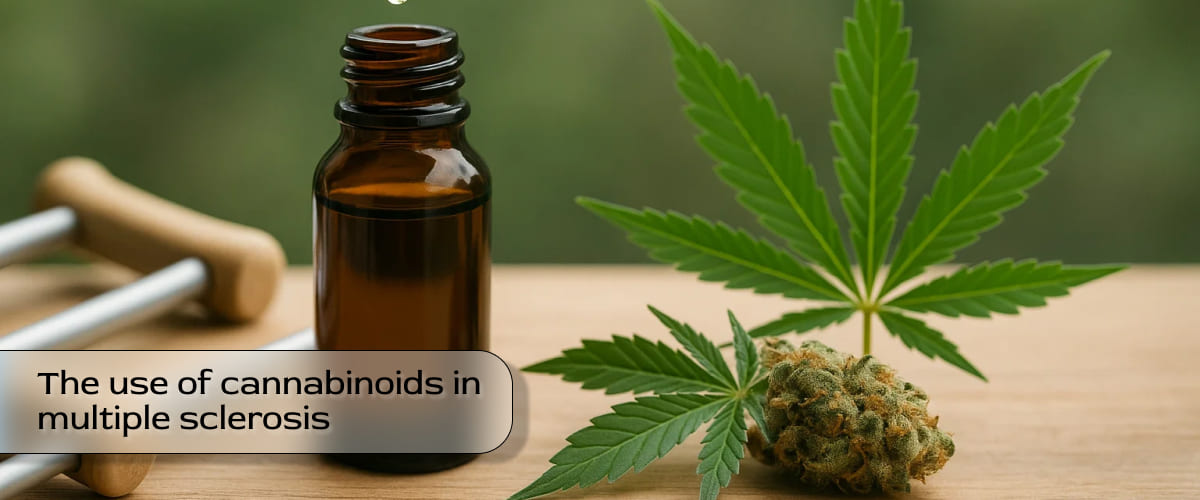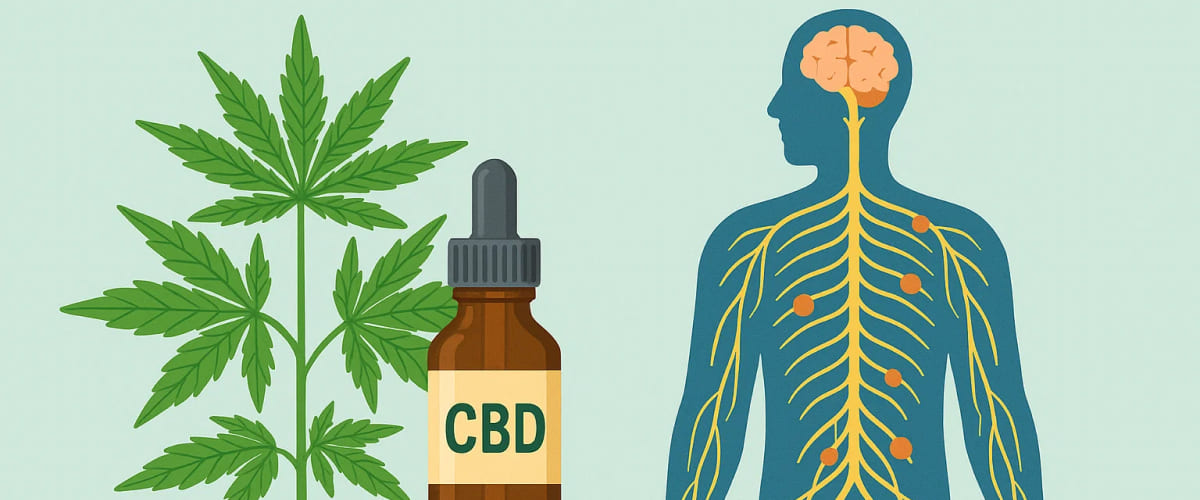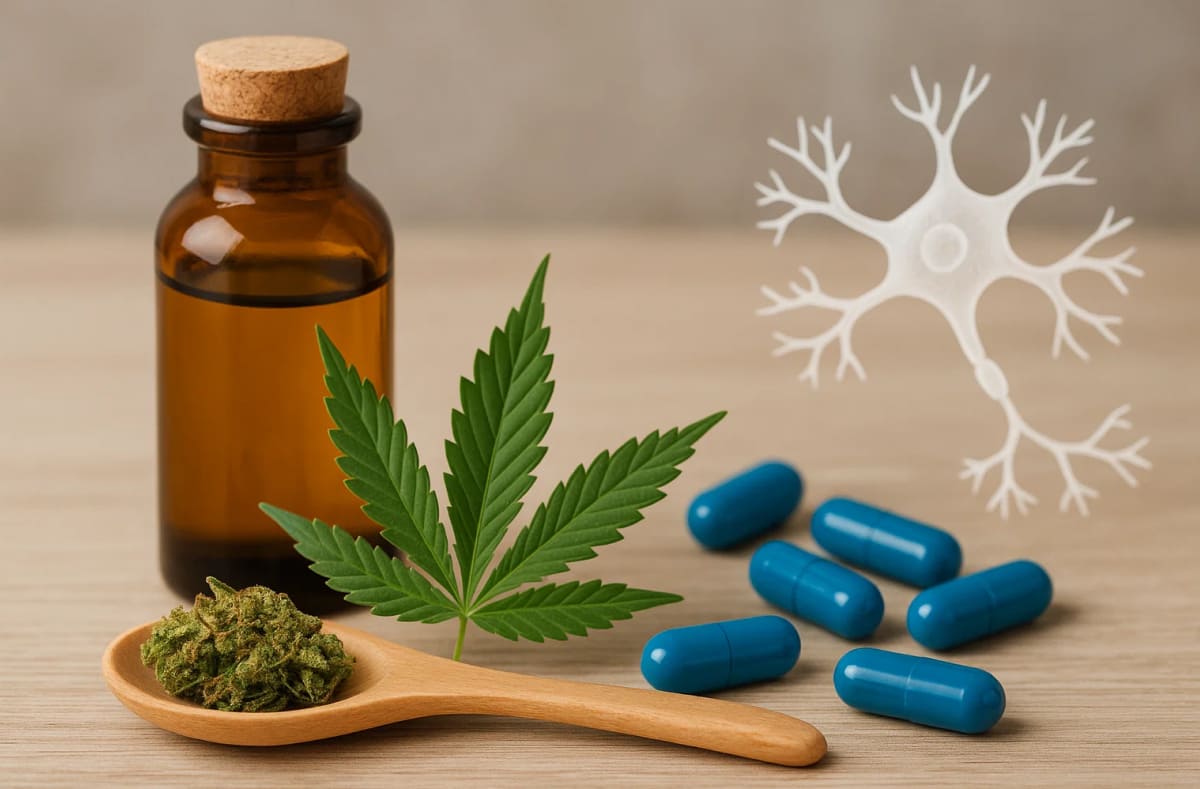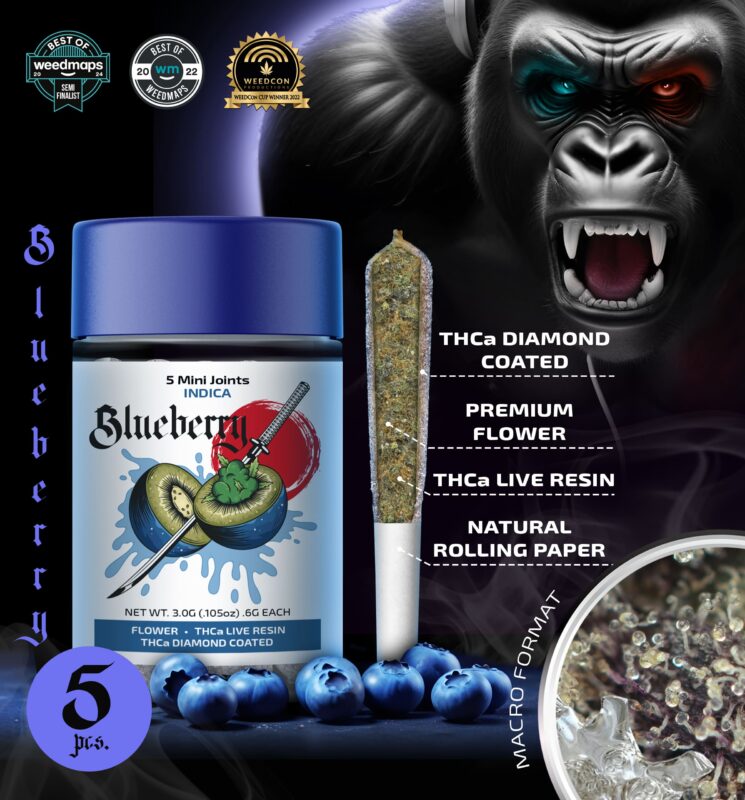Learn more about !
The use of cannabinoids in multiple sclerosis

Multiple sclerosis (MS) is a chronic neurological condition that disrupts communication between the brain and body. Traditional treatments often aim to slow the progression of the disease and reduce flare-ups, but they may not effectively address symptoms like pain, muscle spasms, or insomnia. In recent years, cannabinoids in multiple sclerosis have gained attention as a potential alternative or complementary treatment option.
Cannabinoids such as THC (tetrahydrocannabinol) and CBD (cannabidiol) interact with the body’s endocannabinoid system, which plays a critical role in regulating pain, inflammation, and muscle control. Research suggests that these compounds may offer symptom relief without some of the side effects associated with conventional medications.
Key benefits of using cannabinoids in multiple sclerosis:
- May reduce muscle spasticity and stiffness.
- Can alleviate chronic pain and neuropathic discomfort.
- Might improve sleep quality and reduce nighttime awakenings.
With growing interest and expanding legalization in many regions, more MS patients are exploring how cannabinoids in multiple sclerosis can support their quality of life. However, it’s important to consult a medical professional before incorporating any cannabinoid-based therapy.

How the Endocannabinoid System Affects MS Symptoms
The human endocannabinoid system (ECS) is a complex network of receptors and enzymes involved in regulating key physiological processes. These include immune function, pain response, and neurological signaling — all of which are directly affected in multiple sclerosis. This explains why cannabinoids in multiple sclerosis may have such a profound impact on symptoms.
When cannabinoids like THC and CBD are consumed, they bind to CB1 and CB2 receptors found throughout the brain and immune system. This interaction can help balance the overactive immune responses that drive MS, while also reducing neuroinflammation and calming nerve excitability.
How the ECS influences MS symptoms through cannabinoids in multiple sclerosis:
- CB1 receptor activation may reduce muscle spasms and tremors.
- CB2 receptor activity can help modulate immune responses and inflammation.
- Enhanced endocannabinoid tone may offer neuroprotective effects.
By working in synergy with the ECS, cannabinoids in multiple sclerosis target not only the physical symptoms but also the underlying inflammatory processes. This makes cannabinoid therapy a promising path for holistic MS symptom management.
THC and CBD: A Synergistic Approach
Among the different cannabinoids, THC and CBD are the most well-studied in the context of MS. While THC is known for its psychoactive effects, it also provides pain relief and muscle relaxation. CBD, on the other hand, offers anti-inflammatory and anxiolytic properties without intoxication. The combined use of both compounds appears especially effective when considering cannabinoids in multiple sclerosis treatment plans.
This synergy, often referred to as the “entourage effect,” allows for enhanced therapeutic benefits while minimizing unwanted side effects. Products like Sativex, a THC/CBD oral spray approved in several countries, have shown efficacy in managing spasticity in MS patients.
Why combining THC and CBD may improve outcomes in cannabinoids in multiple sclerosis:
- Balanced ratios can improve symptom relief without strong psychoactive effects.
- CBD can mitigate some of THC’s side effects like anxiety or sedation.
- The duo may increase patient tolerance and adherence to long-term therapy.
For those exploring cannabinoids in multiple sclerosis, this dual approach may offer a more personalized and manageable alternative to traditional pharmaceutical options.

Research and Clinical Trials on Cannabinoid Use in MS
Clinical evidence supporting the use of cannabinoids in multiple sclerosis has grown steadily over the past two decades. Multiple randomized controlled trials have evaluated the effects of THC and CBD on common MS symptoms such as muscle spasticity, pain, and bladder dysfunction. While results vary, a consistent theme emerges: many patients report subjective improvement.
Studies have shown that cannabinoids can significantly reduce muscle stiffness and frequency of spasms in people with MS. Some also report decreased pain and improved sleep quality, although changes in mobility and disease progression are less conclusive.
Key clinical insights regarding cannabinoids in multiple sclerosis:
- Sativex is approved in over 25 countries for MS-related spasticity.
- CBD has demonstrated anti-inflammatory effects in lab models of MS.
- Many MS patients report symptom relief even when objective metrics are modest.
Although more large-scale, long-term research is needed, the current data supports the therapeutic potential of cannabinoids in multiple sclerosis, especially for improving day-to-day comfort and quality of life.
Donkey Butter Strain
Zkittlez THCA Flower 2025
Buy THCA Vape Pens in Rio Grande Valley
Managing Pain and Spasticity with Cannabinoids
Chronic pain and muscle spasticity are among the most debilitating symptoms of multiple sclerosis. These issues often interfere with mobility, independence, and sleep. Conventional painkillers, including opioids and antispastic agents, come with risks such as dependence or severe side effects. This makes cannabinoids in multiple sclerosis an increasingly attractive option for symptom relief.
Cannabinoids target nerve signaling pathways that become dysregulated in MS. THC may dull the pain sensation and reduce abnormal nerve firing, while CBD contributes to muscle relaxation and anti-inflammatory action.
How cannabinoids in multiple sclerosis may help with pain and spasticity:
- Decrease overactive nerve signals responsible for chronic pain.
- Relax muscle tone and reduce frequency of spasms.
- Offer a gentler alternative to pharmaceuticals like baclofen or morphine.
Patients seeking alternatives to traditional pain management often turn to cannabinoids in multiple sclerosis for their potential to provide meaningful relief without heavy sedation or long-term dependence.

Enhancing Sleep and Mood Stability
Sleep disorders and mood disturbances are common in people with MS. Anxiety, depression, and insomnia often develop as secondary issues due to pain, immobility, or neurochemical imbalances. Addressing these aspects is crucial for overall well-being, and cannabinoids in multiple sclerosis may offer dual action benefits.
THC is known to promote deeper sleep cycles, while CBD may reduce anxiety and regulate stress hormone levels. Together, they can help restore more stable sleep patterns and emotional balance.
Key mental health and sleep benefits of cannabinoids in multiple sclerosis:
- THC can improve sleep latency and duration.
- CBD may stabilize mood and reduce feelings of anxiety.
- Better sleep contributes to improved physical recovery and cognitive function.
By improving sleep and emotional resilience, cannabinoids in multiple sclerosis support a more comprehensive approach to symptom management beyond just physical discomfort.
Choosing the Right Cannabinoid Products
For MS patients interested in trying cannabinoid-based therapy, product selection is critical. The market includes a wide variety of options, from THC-rich tinctures to balanced gummies and CBD-only capsules. Understanding dosage, delivery methods, and THC/CBD ratios is essential for optimizing results when using cannabinoids in multiple sclerosis.
It’s also important to start with low doses and gradually increase to avoid psychoactive effects or drug interactions. Consulting with a healthcare provider familiar with cannabis medicine is highly recommended.
Choosing the right form of cannabinoids in multiple sclerosis therapy:
- Tinctures and oils offer fast absorption and easy dose control.
- Capsules and edibles provide longer-lasting symptom coverage.
- Topical creams may help with localized muscle stiffness or pain.
Personalized product selection helps MS patients experience the full benefits of cannabinoids in multiple sclerosis while maintaining control over their therapy regimen.
Safety, Legal Considerations, and Final Thoughts
While the therapeutic use of cannabinoids in multiple sclerosis is promising, safety and legality should not be overlooked. THC-containing products remain federally restricted in some regions, while CBD is more widely accessible. Patients should research local laws and purchase only from reputable, lab-tested sources.
Adverse effects are generally mild but may include dry mouth, dizziness, or altered cognition at high doses. Individuals with psychiatric conditions or who are taking multiple medications should exercise caution and consult a physician.
What to keep in mind when using cannabinoids in multiple sclerosis:
- Always verify product quality and cannabinoid content.
- Monitor side effects and adjust dosage as needed.
- Stay informed on changing legal regulations in your area.
With proper guidance and responsible use, cannabinoids in multiple sclerosis can become a valuable part of a holistic symptom management strategy. As research continues to expand, cannabinoid therapy may become increasingly integrated into standard MS care protocols.

FAQ About Cannabinoids in Multiple Sclerosis
What are cannabinoids and how do they relate to multiple sclerosis?
Cannabinoids are active compounds found in the cannabis plant, such as THC and CBD. In the context of cannabinoids in multiple sclerosis, they interact with the body’s endocannabinoid system to help manage symptoms like pain, spasticity, and inflammation. Their ability to influence nerve signaling and immune function makes them potentially useful for MS patients seeking alternative treatments.
Are cannabinoids a cure for multiple sclerosis?
No, cannabinoids in multiple sclerosis are not a cure. They are used to manage symptoms and improve quality of life. While they may help reduce pain, muscle stiffness, and sleep disturbances, they do not halt or reverse disease progression. Cannabinoids are best viewed as a complementary therapy alongside conventional medical treatments.
Is it safe to use cannabinoids for MS symptoms?
When used responsibly and under medical supervision, cannabinoids in multiple sclerosis are generally considered safe. Side effects like dizziness or dry mouth may occur, especially with high doses of THC. Patients should start with low doses and consult with a healthcare provider to avoid interactions with other medications.
What forms of cannabinoids are best for MS patients?
The most effective forms of cannabinoids in multiple sclerosis often depend on the individual and their specific symptoms. Tinctures and oils allow for precise dosing, while edibles offer long-lasting effects. Topicals may provide localized relief for muscle pain or stiffness. A balanced THC/CBD ratio is often recommended for minimizing psychoactive effects.
Are cannabinoid treatments legal for MS patients?
The legality of cannabinoids in multiple sclerosis varies by country and state. In some places, medical cannabis is legal and accessible with a prescription. CBD is more widely available, even without a medical license. MS patients should check local regulations and choose products from licensed, lab-tested sources to ensure safety and compliance.


















